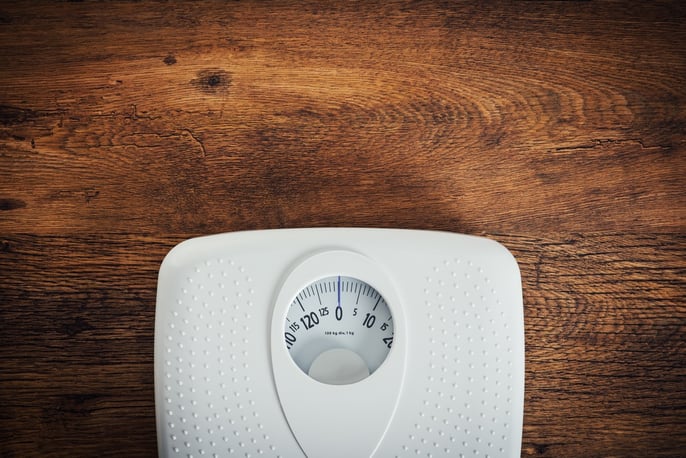
Obesity is such a common condition in the modern world that we tend to take it for granted. Most of us are carrying a few pounds more than we ideally should, with some of us having rather more than a few.
Links between weight and migraine are nothing new, but until now no studies have specifically examined whether being overweight is a contributing factor in episodic migraine.
As a reminder, with episodic migraine you have up to 14 attacks or episodes per month. A chronic migraine sufferer typically experiences 15 or more attacks per month.
The New Migraine and Weight Study
Conducted at the John Hopkins University School of Medicine, the study involved 3,862 people with an average age of 47. Of those, 1,044 were obese and 188 reported having episodic migraine. On evaluating the results of the study, it was found that those who’re obese have an 81% higher chance of suffering from episodic migraine compared with those who are not overweight.
While the results are not conclusive proof that being overweight causes episodic migraine, they do indicate a heightened risk factor.
Researchers agree we need more study, delving deeper into the links between weight and migraine, before we can establish a causal link. Despite this, the findings are conclusive enough to have some clinical importance, and for researchers to urge healthcare providers to offer more counseling to migraineurs regarding diet and exercise.
Lifestyle Changes
No one is saying it’s a simple matter to make lifestyle changes in order to lose weight. Society today is fast paced, with many different commitments fighting for our attention. We grab an unhealthy snack on the hoof during work lunch breaks, then opt for a microwave meal for dinner so we can fit in other activities. A hectic modern lifestyle doesn’t leave much time or stamina for cooking from scratch when you get in hungry and have a family to feed. Asking people to also make time for exercise and to many it sounds like a pipe dream.
And yet, pushing through the barriers and making some changes in how we use our time could have a huge impact on health and pain levels. Reducing the severity or frequency of migraine then has a knock on effect, giving us even more energy for work and play. It’s breaking the unhealthy, vicious circle in the first place that is so hard.
Conduct Your Own Migraine Relief Experiment
Taking the results of the study as motivation, it’s worth conducting your own experiment to find out if losing weight leads to fewer episodic migraine attacks. However, before embarking on an exercise or weight loss program, speak to your healthcare provider. You can get nutrition advice so you don’t end up with mineral or vitamin deficiencies, and they can help you find an exercise program that’s safe and achievable.
Starting slowly is often the best way to go. Not only does this make exercise more enjoyable for people who are not used to it, it’s a less time consuming process so easier to fit into an already busy schedule. A short walk or a few stretches in the morning will help you build an exercise habit and get your body accustomed to moving. As fitness gradually improves, so does the will and stamina for more.
When Not To Exercise
You shouldn’t exercise during a migraine attack, or push yourself too far when you first start. It’s not advisable, for instance, for someone who’s not used to exercise to suddenly undertake a rigorous gym workout. You should also stop if you feel pain anywhere, especially in your chest. Other times when you shouldn’t exercise include:
- When you have flu or a cold, or are feverish
- If you have back pains or osteoporosis
- After a recent asthma attack
- If you’ve suffered concussion
Exercise can actually be a trigger for some migraineurs, which you should take into account and discuss with your doctor. It can be worrying for anyone considering increasing his or her exercise.
Better overall health makes the body more able to cope with illness and disease. As well as the physical benefits, exercise prompts the release of endorphins in the brain. These affect your mood as well as being natural pain relievers.
Although, as mentioned, the studies to date are inconclusive, the results so far suggest a definite link between weight and migraine, and we already know enough about the health benefits of exercise for this to make sense.
If you’re like most of us, carrying a little more weight than you should, losing a few pounds could lead to you experiencing a reduction in your migraine attacks. And that's certainly a goal worth striving for.

